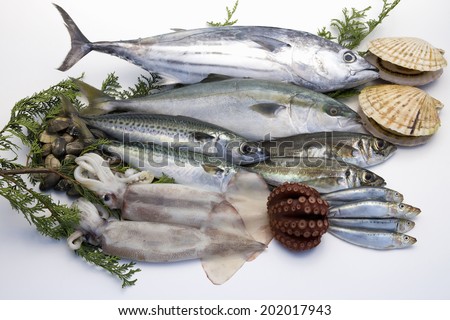Monterey Fish explains that the above ocean fish
should be avoided, and includes King mackerel, barracuda, marlin, conger eel,
jacks and Gulf of Mexico tilefish. Similarly, steer clear of certain wild
freshwater fish, as well, including whitefish, pickerel, pike, walleye and lake
trout due to potential mercury contamination. However, here’s an interesting
twist to the narrative.
In some cultures, fish is on the menu far more often
than in the U.S., especially Japan, a relatively small nation entirely
surrounded by water. In fact, it’s consumed four to five times more there than
in the U.S. The people have regularly consumed the largest tunas they could
catch for centuries, so it’s very likely they accumulated large amounts of
methylmercury, apparently without causing problems. But there’s more:
“A
number of studies have found that the essential element selenium, high amounts
of which are found in ocean fish, sequesters mercury, thus neutralizing its
toxic effects. This may be the reason why studies have never shown an epidemic
of child developmental problems in coastal populations whose diets have been
comprised in large part of seafood.”
Further, the omega-3 fatty acids in healthy seafood,
namely fresh-caught Alaskan salmon, sardines, mackerel, herring and anchovies,
are essential for your overall health. If you do not eat fish for whatever
reason, I recommend that you take a quality supplement to supply it.
My best recommendation is krill oil, which is animal
based and contains the highly crucial EPA and DHA omega-3s your body needs. EPA
and DHA are important for your heart and brain, cellular and mitochondrial
function, bone health and mood regulation, as well as for healthy fetal
development and pregnancy.
On the other hand, methylmercury poses the greatest
threat to the nervous system while unborn babies and newborns are developing —
their brains, immune and nervous systems and retinas, in particular. It easily penetrates
the placenta, where the mercury concentration in red blood cells may be 30
percent higher than in those of the baby’s mother.
Article Source: Dr Mercola at Mercola.com

